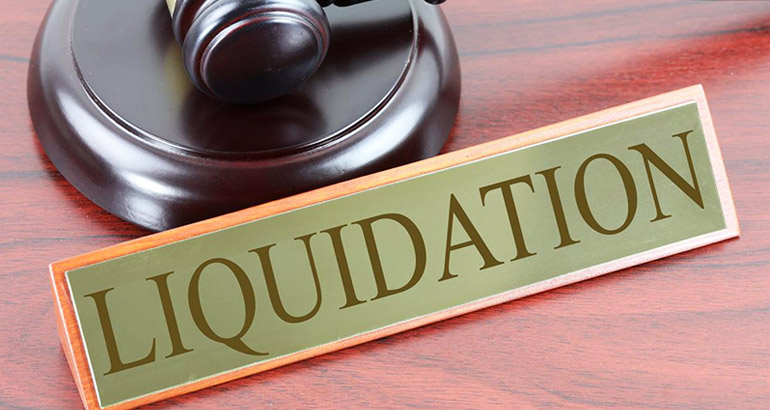The 10-Minute Rule for Company Liquidation
The 10-Minute Rule for Company Liquidation
Blog Article
The Only Guide for Company Liquidation
Table of ContentsThe Greatest Guide To Company LiquidationThe Ultimate Guide To Company LiquidationThe smart Trick of Company Liquidation That Nobody is Talking AboutThe Ultimate Guide To Company LiquidationThe smart Trick of Company Liquidation That Nobody is Talking About
A liquidator is especially assigned to look after the ending up of a firm's events in order for it to be shut down normally when the business is going bankrupt. The liquidator is an objective 3rd party who supervises the sale of company assets in order to repay any kind of arrearages.Their duty consists of, however is not limited to: Impartial Movie director: A liquidator is charged with functioning as an objective 3rd party to oversee the whole business liquidation process. Create Declaration of Affairs: Liquidators must develop a thorough statement of affairs record. This paper is distributed to financial institutions, describing the current financial standing of business at the time of its liquidation.
After the liquidation of a business, its presence is eliminated from Companies Residence and it stops to be a legal entity. If supervisors navigated the procedure uncreative, there would certainly be no fines or personal liability for solid debts anticipated. Now, with a fresh start, directors can explore new organization chances, though expert examination is recommended.
The 10-Minute Rule for Company Liquidation
If even more than 90% of all company shareholders agree, liquidation can take place on brief notice within seven days, the minimum legal notice for creditors. Normally, the larger the liquidation and the even more possessions and resources the service has, the longer the process will certainly take.

We understand that no 2 firms are the same, which is why we will take the time to be familiar with your business so we can advise the very best strategy for you. We just operate in your finest interests, so you can be totally certain in the service we provide.
What Does Company Liquidation Mean?
In the UK, there is a set process to shutting down or reorganizing a limited company, whether it is solvent or insolvent. This process is understood as liquidation and can only be taken care of by an accredited bankruptcy specialist (IP) in conformity with the Insolvency Act 1986. There are four primary types of company liquidation procedure: Financial institutions' Volunteer Liquidation (CVL); Required liquidation; Management; and Participants' Volunteer Liquidation (MVL).

In these conditions, it is necessary that the business stops trading; if business continues to trade, the supervisors might be held personally liable and it can result in the insolvency professional reporting wrongful trading, called misfeasance, which may bring about legal activity. The directors assign a bankruptcy practitioner and when this has actually been agreed and validated, there is a meeting with the shareholders.
The directors are no much longer entailed in what takes place, including the sale of the firm's properties. If the supervisors desire any of the possessions, they can inform the IP.
The 5-Minute Rule for Company Liquidation
The primary distinction is that the firm's financial institutions put on the court for a winding up order which compels the bankrupt business right into a liquidation process. Most of the times, financial institutions take this activity as a last resource due to the fact that they haven't received settlement with other kinds of settlement. The court selects an insolvency practitioner, additionally understood as a main receiver, to carry out the compulsory company liquidation process.
This type of firm liquidation is not voluntary and supervisors' conduct is reported to the UK's Secretary of State once the liquidation procedure his explanation has been finished. Any type of supervisor that stops working to coordinate with the IP or has been entailed in director misconduct, or an illegal act, may result in severe repercussions.
It is used as a way to safeguard the business from any type of lawful activity by its creditors. The directors of the company agree to make routine repayments to settle their financial obligations over a duration of time.
Rumored Buzz on Company Liquidation
This supplies the company with time to develop a strategy moving forward to save the business and prevent liquidation. At this factor, directors hand control of the company over to the assigned manager. If a firm is solvent however the directors and investors desire to close business, a Members Voluntary Liquidation is the right alternative.
The business liquidation process is taken care of by a liquidator selected by the directors and shareholders of the company and they have to authorize a declaration that there are no financial institutions continuing to be. The liquidation process for an MVL is comparable to that of a CVL in that assets are know but the profits are dispersed to the directors and the investors of the look at here now company after the liquidator's charges have actually been paid.
Report this page